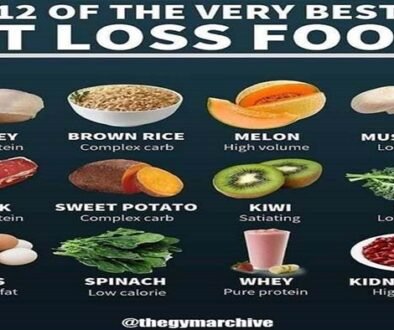What is the Best Way to Lose 20 kg in Two Months?
This can be said to be a pretty ambitious objective that would require a well-structured and disciplined approach in two months. Although much weight can be lost within this period, health must not be compromised and drastic measures avoided at all costs. This can be helped by strategic dieting, regular workouts, and certain lifestyle changes. Here is a detailed guide on how one can safely and effectively lose 20 kg within two months.
1. Realistic Expectations
First of all, realistic expectations need to be set. Yes, rapid weight loss motivates, but to lose 20 kg in two months, that is approximately 2.5 kg per week, is a bit higher than the recommended healthy weight loss of 0.5 to 1 kg per week. Therefore, this should be approached with caution, and one should not expect much in the way of realistic weight loss.
2. The Clue to It All Is a Caloric Deficiency
One needs to create a deficit in calories where the burned calories outnumber the ones consumed to have weight loss. For you to burn 1 kg, you need an approximate deficit of 7,700 calories. This therefore means that you will have to make a huge daily deficit to reach the 20 kg loss in two months. Here’s how you can achieve that:
Estimate Your Daily Caloric Needs: Get online, run some numbers in a calorie needs calculator, and your BMR will be estimated by how many calories your body needs at rest. Of course, taking your activity level into consideration gives you your TDEE.
Reduce Caloric Intake: Take in about 500-1,000 fewer calories per day than your TDEE. Just be careful not to go below 1,200 calories a day for women or 1,500 for men because that would be unsafe.
Focus on Nutrient-Dense Foods: Keep in mind high-protein, low-carb meals and add several vegetables. High-protein foods will keep you full and maintain your muscles.
3. Follow a Balanced Diet
Crash diets may result in loss of muscles and nutritional deficiencies. Follow a balanced diet for long-lasting success:
High-Protein Diet: Protein is one of the most essential nutrients in one’s body for maintaining muscles, especially when one is on weight loss. One needs to take 1.2 to 1.6 grammes per kilogramme of body weight. It helps you retain your muscles and boosts your metabolism.
Low-carb and high-fibre foods: Avoid refined carbohydrate-containing foods such as white bread, pasta, and sugar. Whole grains, legumes, and vegetables will replace these, rich in fibre, helping in satiety and maintaining the sugar levels in the blood.
Healthy Fats: Healthier fats include avocado, nuts, and olive oil, which are used in moderation to help suppress appetite and provide sustenance.
Intermittent Fasting: IF controls the time one eats by allocating certain times to eat. For instance, 16:8 would mean a person should starve for 16 hours and eat within an 8-hour window. In the process, over time, it cuts down on calories.
4. Exercise: More Aerobics and Strength Building
At the core, for any efficient burning of calories, both cardiovascular exercise and strength training should be done:
Cardiovascular Exercise: Do at least 300 minutes of cardio per week; this could be brisk walking, running, swimming, cycling, or high-intensity interval training. The latter is considered especially helpful because, in a very short length of time, it burns more calories than regular cardio exercise and increases one’s metabolism.
Strength Training: You can begin weight training or resistance exercises three to four times a week. Resistance training helps in the building of muscles. The more muscle you have, the higher your resting metabolic rate, which means that more calories are being burned by the body even when you are resting.Active Lifestyle: Complementing this regular exercise, integrate more activity into daily living. Take the stairs, walk instead of driving short distances, and engage in household activities that take physical effort.
5. Get Enough Sleep and Practice Stress Management
It’s about sleep and stress, too, that help with weight loss. Poor sleeping and high levels of stress can interfere with the hormones controlling hunger and fat storage within the body. In return for such, an individual receives 7-9 hours of sleep every night. Poor sleep will increase hunger hormones like ghrelin, making it much more difficult to stick to calorie goals. A person has to get at least 7-9 hours of quality sleep every night.
Manage Your Stress: High stress can trigger emotional eating and, consequently, lead to weight gain. The addition of stress-reduction activities such as yoga, meditation, or deep breathing exercises will be helpful in maintaining the health of the mind with that of the body during weight loss.
6. Hydrate
Drinking sufficient water is important for anyone trying to lose weight. In addition, water contributes to regulating your metabolism and helping suppress your appetite, boosting fat burning. At least 2-3 litres of water should be consumed each day, and it would be better if the meals would start with a glass of water in order to help you eat less.
7. Track Progress
Monitoring your progress can keep you motivated and help you stay on track.
Food Diary or App: This helps track accountability and ensures you are hitting your calorie and nutrient marks.
Week Weightings: While your weight could change on a daily basis, it is most affected by weekly weigh-ins.
Measurements: Sometimes, the scale will just not tell you the whole story. Other than that, measure around your waist and hips, among other areas, to see the change in your body composition.
8. Refrain from Extremes
While very tantalising, attempting to rush the process with extreme diets or excessive overexertion through workouts can lead to a loss of muscle mass, slowing metabolic rates, and other adverse health effects. You would therefore be better off exploring long-term methods for weight loss. If you’re having trouble, consider reaching out to a registered healthcare professional or a nutrition expert to assure yourself that you’re on track correctly.
Conclusion
Quite ambitious it is to want to shed 20 kg within two months. Though definitely achievable, execution must be strategic and in a very systematic manner. Take in healthy food filled with nutrition, keep an exercise schedule, but make sure to keep it workable, sleep adequately, and hydrate well. After all, health is always the topmost priority; nobody should ever sacrifice it for rapid results. It is a process, and even if you may not reach that exact target in two months, the changes will start you on the right path to a healthier, fitter version of yourself.



